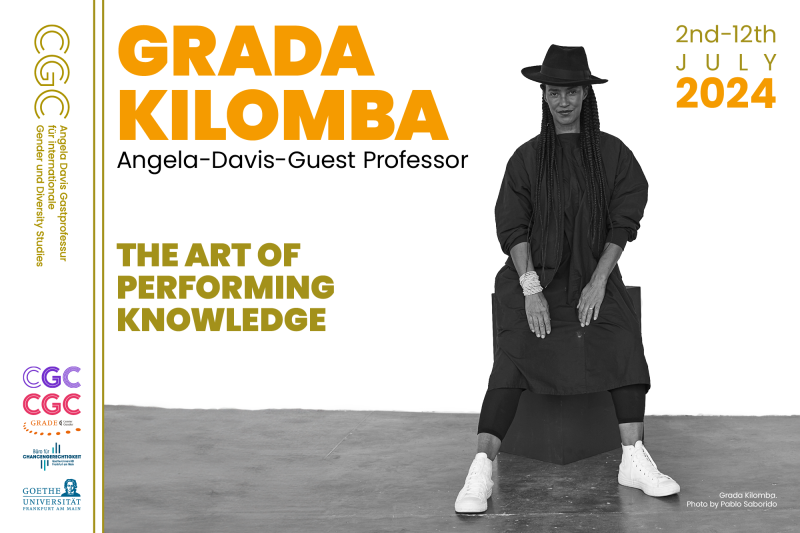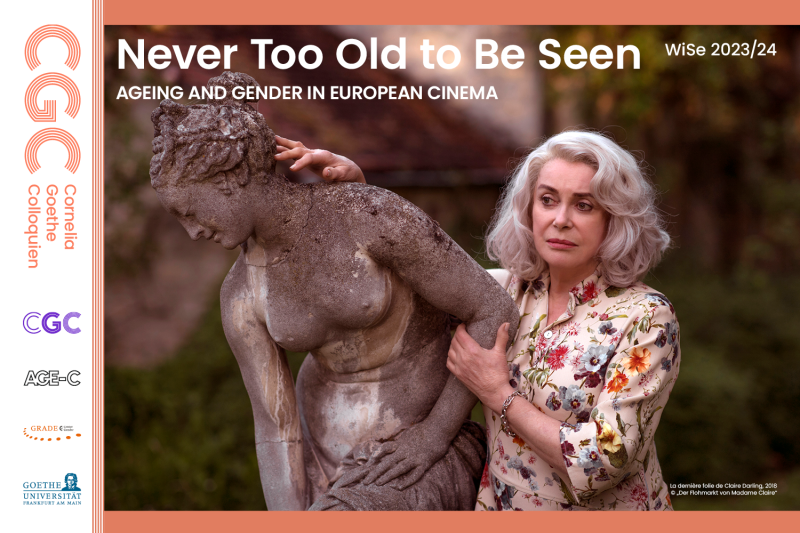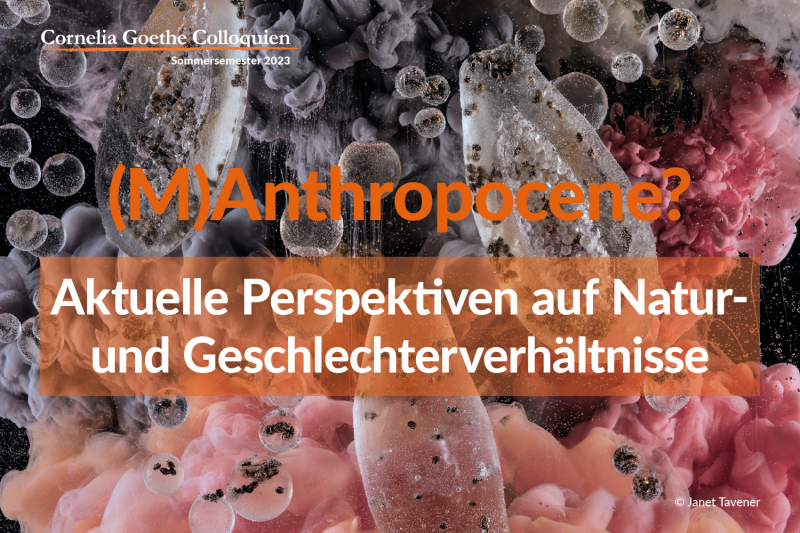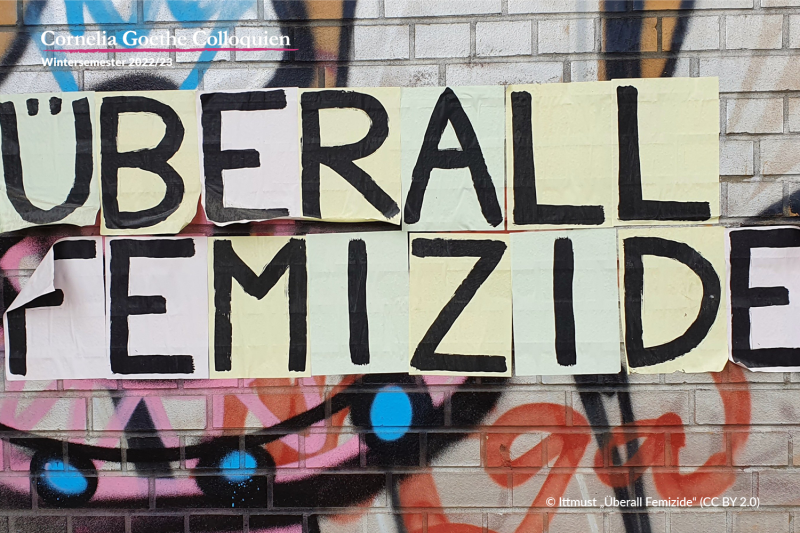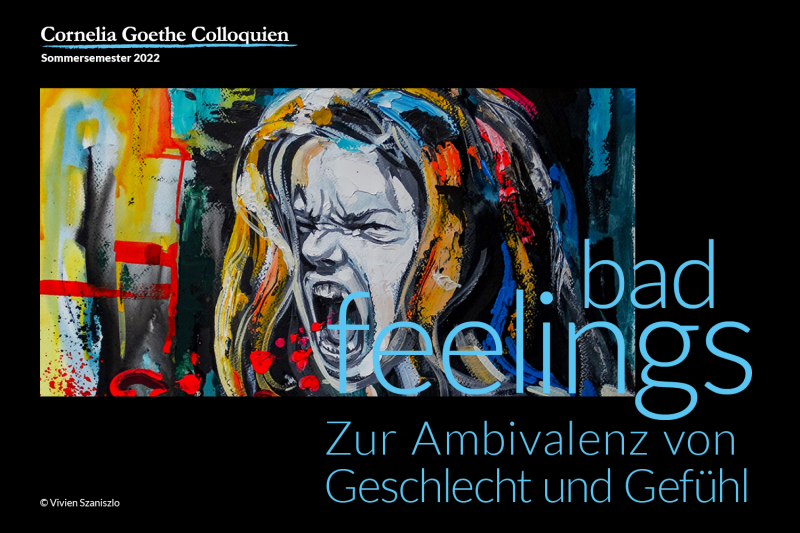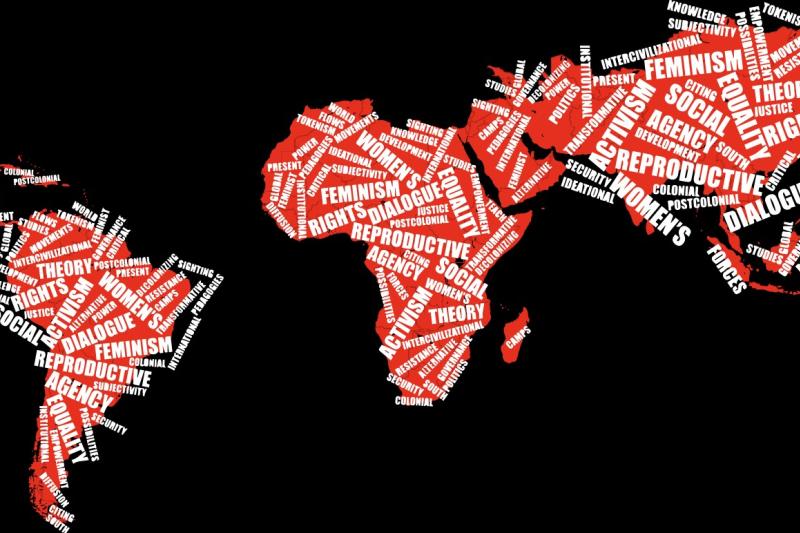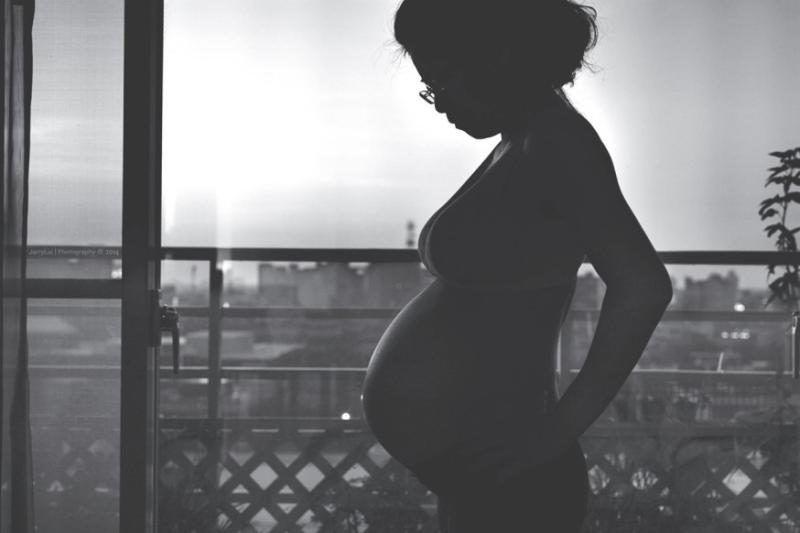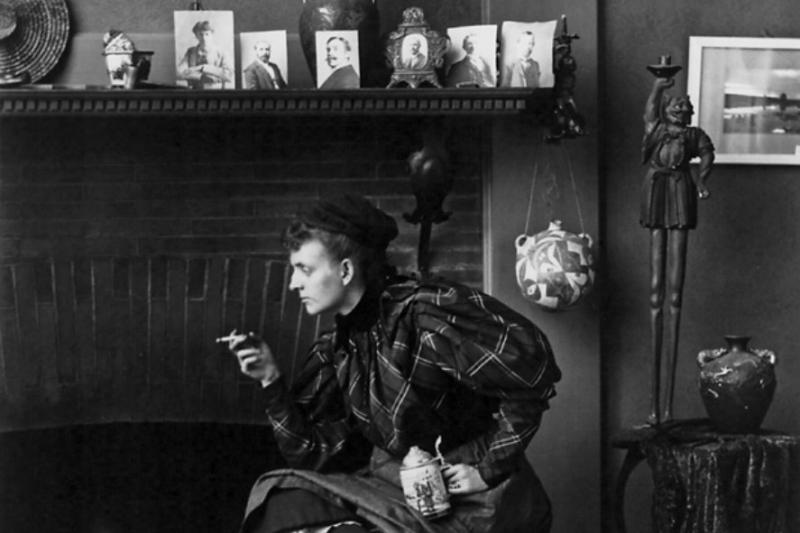The CGColloquia, scheduled for the summer semester of 2025, will convene a multidisciplinary assemblage of scholars and researchers from a variety of fields, including gender studies, anti-Semitism, colonialism, critical migration studies, and racism research. This interdisciplinary gathering will also incorporate insights from urban society, aiming to foster a dynamic space for academic reflection and discussion. The objective of this initiative is to address issues that often evoke a state of perplexity or silence within the academic community.

Returning (2024) © Karma Abudagga, The Inbetween Collective
Logics of violence
Care to Repair
Based on the observation of the central role of care in social reproduction, the Cornelia Goethe Colloquia in the winter term of 2024/25 will address the question of whether care relationships and the associated care work can repair the inherent damages of social relations or should do so. To some extent, for instance, neighbourhood care networks can compensate for damaged living and working conditions. Furthermore, infrastructural deficiencies in urban and rural areas or in border regimes can also be addressed, as can produced vulnerability.
However, it is necessary to determine the extent to which these potential for repair extend. What new exclusions might arise, and what damage is irreparable? It may even be the case that there are fissures which would be better left unrepaired, but which should be allowed to become visible.
Whose Knowledges? (Post-)Coloniality and the Art of Collective Empowerment
(Post-)colonial logics are inscribed in our society and are reproduced through colonizing knowledge practices and institutions such as universities. In contrast, resistant knowledge exists alongside and interwoven with these logics. Often not recognized as such, Black women* and women* of color pass on this knowledge.
Artists and cultural workers have developed interventions that show how colonizing knowledge practices and institutions can be changed. They are based on mutual respect and recognition and joint learning and action. This summer semester, the Cornelia Goethe Colloquia will explore resistant knowledges and their performativity.
Never Too Old to be Seen
When feminist film scholar Laura Mulvey famously described classical Hollywood cinema as an art form dominated by a male gaze which objectifies women, she forgot to specify “Women under 35”. 75% percent of the audience of mainstream Hollywood cinema are between 14 and 30 years old, and starring roles for women are reserved for actresses largely in that age bracket. By contrast, European cinema increasingly seems to offer important roles for women over sixty, and stories, which validate and expand on the experience of ageing people of all genders. This partially reflects the fact that European cinema consists mostly of arthouse films, and that the audience for arthouse cinema has been ageing over the last decades.
(M)Anthropocene?
Angesichts des Klimawandels und anderer Krisen stellen die Colloquien aktuelle Beiträge zum Verhältnis von Geschlecht und Natur zur Diskussion – von der Erneuerung ökofeministischer Ansätze über queertheoretische und intersektionale Perspektiven bis hin zu neomateralistischen Theorien. Die Vortragsreihe beleuchtet so schlaglichtartig die geschlechtertheoretische und feministische Diskussion von Implikationen des Dualismus von Natur und Gesellschaft im 21. Jahrhundert.
Theorizing Gender(ed) Violence
Gewalt gegen Frauen, Mädchen und dissidente Körper wurde in den letzten Jahren zu einem zentralen politischen Thema feministischer Bewegungen rund um den Globus. Unter dem Hashtag MeToo und dem Slogan ‚Ni una menos‘ prangerten Zigtausende den Fortbestand geschlechtsbezogener Gewalt an. Vor allem feministische Bewegungen in den Amerikas haben die Frage der Gewalt angesichts drastischer Zahlen von sexuell-sexualisierter Gewalt und Morden an Frauen und trans*Personen in den Mittelpunkt ihrer Mobilisierungen gestellt und auch begrifflich neu zu bearbeiten versucht.
Bad Feelings
Menschen erleben Gefühle je für sich, dennoch sind Gefühle keine Privatangelegenheit. Gefühle werden von kulturellen Diskursen mitgestaltet oder allererst hervorgebracht, sie sind gesellschaftlichen Regeln unterworfen und werden situativ ausgehandelt, kaschiert oder inszeniert. Gefühle sind spürbares Produkt und körperlicher Ausdruck sozialer Macht- und Geschlechterverhältnisse sowie mit spezifischen normativen Erwartungen und moralischen Zuschreibungen verknüpft. Letzteres zeigt sich unter anderem daran, dass Gefühle immer auch mit Wertungen verbunden sind: Manche Gefühle gelten als „gut“, etwa Liebe, Freude, Vertrauen, Mitgefühl oder Mut, andere hingegen als „schlecht“, beispielsweise Ärger, Hass, Wut, Neid oder Zorn.
Feminisms from the Global South
In the midth of capitalism‘s multiple crises and the following political charges,emancipatory ideas and practice are under pressure. Not limited to the Global North feminism – in singular as well as in plural – is opposed by right wing populism and authoritarianism whilst the new anti-genderism is coupled with strong expressions of racism. At the same time, feminism is challenged by neoliberal appropriations when ‘lean-in’ feminism or certain gender mainstreaming politics ignore the radical astute and visionary potential of earlier feminisms.
The “Others” of Reproductive Medicine
Clinics and medical centers worldwide off er assisted reproductive technologies while more and more women and couples utilize these services. The rising demands as well as the off er of these medical and technical procedures are in the center of the public and bioethical debates. The debate focuses on individual reproductive self determination, the right to have an “own” child and the legitimacy to fulfill this desire through the use of reproductive technologies. But this debate leaves out significant questions that arise along with the transnational use of reproductive technologies as well as it ignores the social relations of these technologies – as other individuals and groups are involved in and affected by these procedures.
Refugee Migration and Gender Relations
This lecture series focuses on alternating interdependencies between (current) refugee migration and gender relations. The lectures will mainly place emphasis on two Questions: How is gender related to migration and under what circumstances are refugee and mobility practices connotated as male or female? Secondly, how and in what ways are individuals institutionally and socially defined and labeled as ‘refugees’ and/or ‘migrants’? A focus on mutual constitutions of migration and gender relations allows to reconstruct and analyse specific frames of masculinity and femininity in the context of contemporary refugee mobilities.

© Max Froumentin - „Milk Statue, 2014“ - http://lapin-bleu.net/
NatureCultures of Milk
Do cows cause climate change? Does milk cause cancer? Why do we find cheese made from human breast milk revolting but love to eat cheese made from cow’s milk? Can men lactate? Who produces milk substitutes made from soy, rice, almonds? Where does the milk surplus of EU productions go? How do societies change when their milk consumption changes? How do cows live? How would cows like to live? Is dairy for strong bodies and for strong minds? Why are milk sops weaklings? Does milk matter? As such questions suggest the topic of milk evokes various academic and non-academic discourses and practices of knowledge.
Materialität revisited
Over the past few years, materialism has re-emerged as a topic of interest in the context of feminist activism and research. This ‘material turn’ manifests itself in the context of analyses of gender relations, labour, and transnational capitalism as well as in feminist studies of biopolitics and ‘nature’. Materiality is also addressed in feminist theories of sciences which understand bodies and the environment beyond notions of performativity. Furthermore, contemporary global struggles of women in different locations center on material conditions of life, such as access to and the right to food, water, land, labour, health, social security and the right to self-determination regarding one’s body and sexuality.
Masculinities
In recent decades men’s studies have become an interdisciplinary and international research paradigm. In the summer term the Cornelia Goethe Colloquia will focus on Masculinities. The title hints at a thrilling plurality of theoretical approaches, research topics, and perspectives within men’s studies.
Varieties of Feminism
The transformation of gender relations in post-socialist Europe is rooted in the entangled histories of state- and post-socialism. Gender equality was the official goal of the socialist rule and a target achieved in particular with regard to women’s participation in employment. However, after the end of the bi-polar world order the post-socialist countries of Europe have not only been confronted with new transnational gender discourses, but also with stabilization of patriarchy and re-traditionalization of gender norms.
How Does Change Happen?
Leader of the Communist Party USA, civil rights and prison rights activist, Angela Davis, who studied Philosophy at the University of Frankfurt from 1965-1967, poses the challenging question “How Does Change Happen?”.
She proposes that a “critical posture” towards the tools, concepts, vocabularies, and organizing practices that characterize landscapes of struggle involves transforming our habits of thinking and imagination. Such an indispensable scrutiny would contribute towards rethinking the interrelationship between activism, advocacy work, and knowledge production.
Gender and ‘the Political’ in a Postcolonial World
The aim of this international lecture series is to reflect upon the meaning of ‘the political’ in a postcolonial world. Internationally reputed scholars are invited to explore the implications of race, class, gender and sexuality as shaped through colonialism for the structuring of contemporary global politics, which continues to be confronted with the legacies of empire. Addressing issues like cosmopolitanism, global governance, democracy, human rights, transnational justice, development politics, decolonisation, war and peace from a feminist-postcolonial lens, this lecture series will simultaneously explore how norms are negotiated in the postcolony as well as the potential for normative violence.

